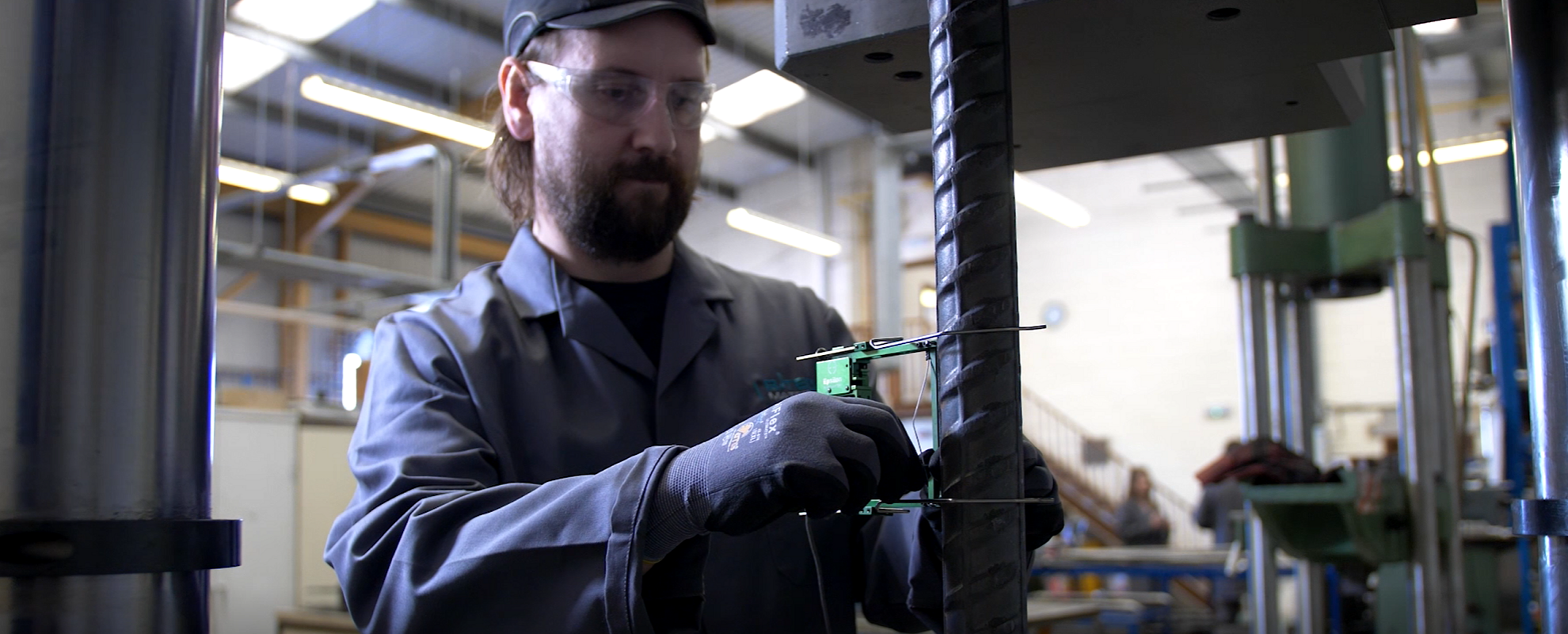Reinforcing Steel
Over the last 15 years R-TECH Material’s steel testing laboratory has received steel from more than 60 countries and hundreds of mills from every continent on the globe. This includes reinforcing bar (rebar), reinforcing coil (recoil) and welded mesh (sometimes called welded fabric). Because it is such a global industry, and because steel suppliers can be very far from their clients, product certification plays a major role in supporting the global steel trade. Fast, accurate and reliable product testing is an integral part of the product certification process, and that is where R-Tech Materials is particularly strong. Our wide scope of UKAS accredited testing is designed to give suppliers and customers the confidence they need in the quality of the materials being delivered.
Almost all of our testing of reinforcing steel products is conducted according to ISO 15630 Parts 1 (Reinforcing Steel) and Part 2 (Welded Fabric). These international tests standards can be applied to most national or international product standards.
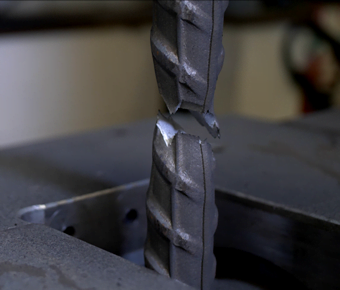
Static Testing
Our universal testing machines have all the necessary technology for testing reinforcing bar for all sizes up to 50mm (1.5MN). These machines can facilitate testing to British, European, ISO standards as well as the national standards of other nations with extensometry for accurate strain measurement.
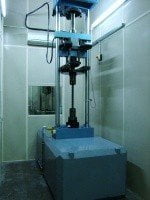
Fatigue
Our specialist rebar fatigue laboratory is a world leader and as such we receive fatigue testing samples from steel mills all over the world. We can test to standards for Britain, Germany, Holland, Singapore, Malaysia, USA and many others with capacity up to 400kN. Alongside a full suite of electro-magnetic resonance machines, we also have a servo-hydraulic test machine where complex loadings, through-zero loading or reduced frequency testing are required.
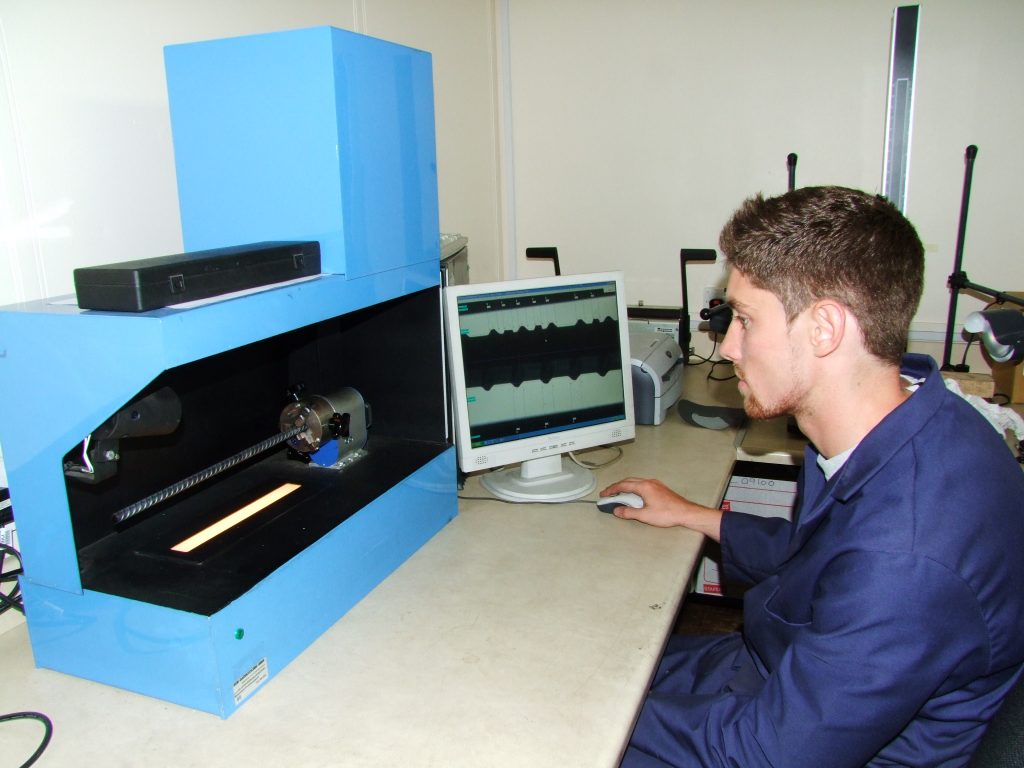
Chemical Analysis & Characterisation
Alongside these mechanical testing facilities, the in-house chemical and characterisation laboratories provide facilities to meet further testing requirements such as:
- Rib geometry
- Hardness
- Carbon, Sulphur, Nitrogen
- OES for other alloy elements and impurities
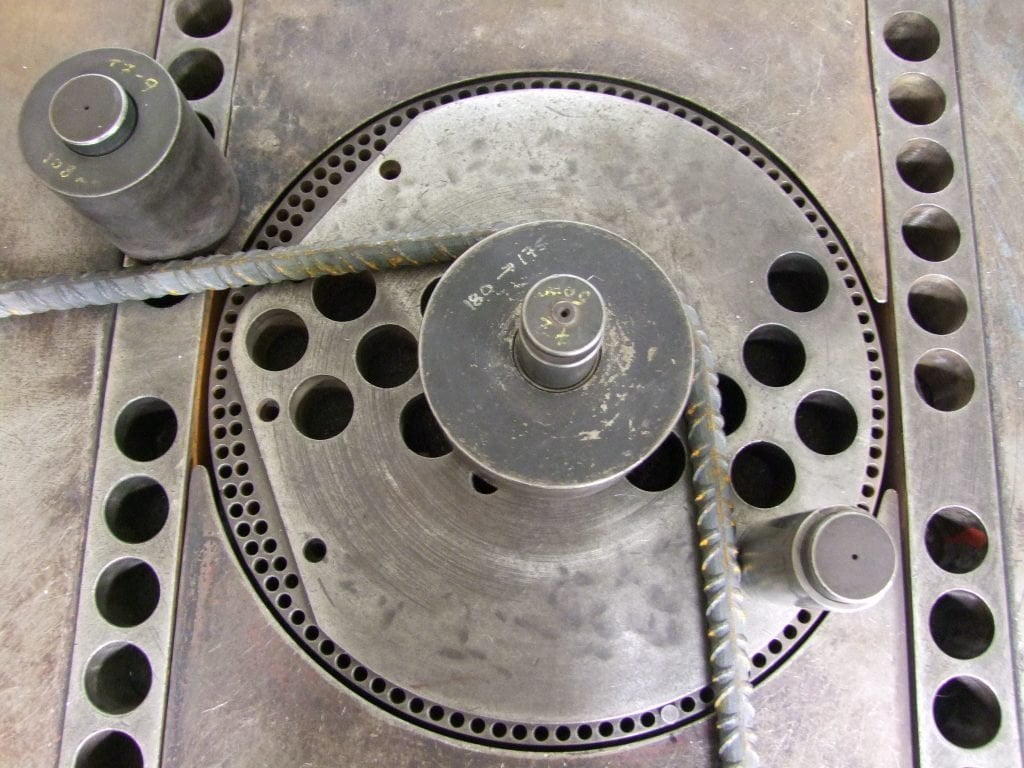
Bend / Rebend
Many national standards require a bend or rebend test. The rebend test requires an ageing heat treatment between the bend and rebend stages. Different standards specify different mandrel diameters, as a means of determining the severity of the bend. This simple test ensures the integrity of the bar when bent during fabrication and can be performed on all sizes of rebar up to 50mm.
Our reinforcing steel laboratory is UKAS accredited to provide our clients with confidence that their testing data is accurate and reliable. Below you can find the tests by type which are accredited within our quality management system.
- BS EN ISO 6892-1:2009 (Method B)
- ASTM A370-16
- BS 4449:1997 (Superseded)
- BS 4449:2005+A3:2016
- BS 4482:1985 (Withdrawn)
- BS 4482:2005
- BS 4483:1998 (Withdrawn)
- BS 4483:2005
- BS 4486:1980
- BS 6744:2001
- BS EN ISO 15630-1:2010
- BS EN ISO 15630-2:2010
- BS EN ISO 15630-3:2010
- ASTM A370-16
- ASTM A615/A615M-16
- ASTM A706/A706M-16
- BS 4449:1997 (Superseded)
- BS 4449:2005+A2:2009
- BS 6744:2001
- BS EN ISO 15630-1:2010
- BS EN ISO 15630-2:2010
- BS EN ISO 15630-3:201
- BS 6744:2001
- ASTM A370-14
- ASTM A615/A615M-09b
- BS 4482:1985 (Withdrawn)
- BS 4482:2005(2012)
- BS 4449:1997 (Superseded)
- BS 4449:2005 + A3:2016
- BS EN ISO 15630-1:2010
- BS EN ISO 15630-2:2010
- BS EN ISO 15630-3:2010
- ISO 7801:1984
- Elemental Analysis by documented in house method APM03 using OES (Spectromax – X)
- Carbon and Sulphur by documented in house method APM 04 using Leco CS 244 analyser
- Nitrogen by documented in house method APM 05 using Leco TN 114 analyser
- Determination of Geometrical Characteristics – BS EN ISO 15630-1:2010
- Relative Rib Area – BS EN ISO 15630-2:2010
- Deviation from normal mass per metre – BS EN ISO 15630-3:2010
- Macro examination by documented In-House Method PM23
- BS EN ISO 6507-1:2005
- BS EN ISO 9015-1:2011
- BS EN ISO 15614-1:2004
